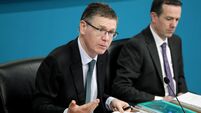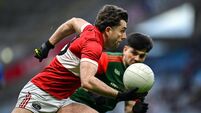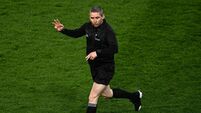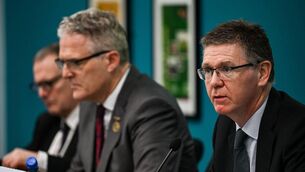Arena built for heroes, built also for their slaughter
On days such as we had last Saturday when the forecasters of doom turned out to be all too right, we see only your bad side, your hard side. Six days previously we saw you at your best. Down on your pristine, millimetre-perfect pitch, nearly 60,000 of us witnessed two evenly-matched teams of gladiators locked in a death-match.
Not this time. Not this day.










